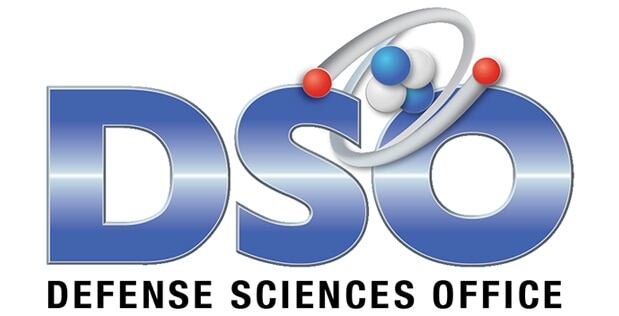The Defense Advanced Research Projects Agency (DARPA) is known for working beyond the cutting edge of technology and producing things that go beyond most people's imaginations (see: internet). But the agency does little research on its own.
Instead, DARPA uses targeted funding to help the academic and private sectors take radical, far-fetched ideas into the realm of possibility.
The Defense Sciences Office (DSO) — one of the six program areas — is reaching out to these sectors in an effort to solicit more ideas and develop them on a track that will benefit national security and society writ large.
The office issues twice as many requests for information as the rest of DARPA combined, according to Dr. Bill Regli, DSO acting director. In those "seedling" requests, DSO is looking for "fundamentally disruptive," "crazy ideas" that could lead to significant breakthroughs in how the U.S. defends and operates as a country, he explained during DARPA DSO Day on June 15.
To be successful, he said, proposers should be sure to pitch problems, not solutions.
"Bring me something you don't know how to solve," Regli said. Something "that you have the skills to address but is just far enough out … that it would change the way something works."
"Come up with a scientific hypothesis. Something that's just out of reach for which maybe you need to build an instrument or do a study," he said. "Open up some insight about the world that we can use for national security purposes or to make, essentially, the country better."
DSO's program managers — who generally spend three to five years in the role — pitch projects to senior leadership. Once approved, those managers then solicit ideas from academia and the private sector and provide funding for proposals that move those ideas closer to reality.
A successful proposal will be able to answer seven questions, collectively known within DARPA as the Heilmeier Catechism (which are printed on the back of employee ID cards):
- What are you trying to do? (No jargon!)
- How does this get done today?
- What is new about your approach?
- If you succeed, what difference do you think it will make?
- How long do you think it will take?
- Can your work transition (to DoD or others)?
- How much will it cost?
Regli warned against confusing the first question and the third.
"The common mistake is to conflate ‘what’s new in your approach’ with ‘what are you trying to do.’ People come with their technique that they want to work on and don’t think about the problem they’re trying to solve, at the right level of abstraction," he said. "Can I come up with a problem for which your technique provides a new insight?"
Regli suggested responding to specific RFIs rather than cold-calling. DSO does sometimes get unsolicited proposals, but those are rarely, if ever taken up, he said.
The best way to build a successful partnership — i.e., get funding for your ideas — is to partner closely with DSO’s program managers.
"What you want to do is identify program managers who overlap with your interests and get to know them. Figure out what they’re interested in and whether your ideas can help them solve the problems they’re working on," Regli said.
He also suggested finding the newest program managers to join the office, as they’ll be most interested in building new partnerships and are more likely to be in the early stages of a project, when new proposals are most crucial.
"Let’s see if we can keep fomenting revolutions together by creating a greater community of people who know how to work with DARPA," he said.
Aaron Boyd is an awarding-winning journalist currently serving as editor of Federal Times — a Washington, D.C. institution covering federal workforce and contracting for more than 50 years — and Fifth Domain — a news and information hub focused on cybersecurity and cyberwar from a civilian, military and international perspective.





